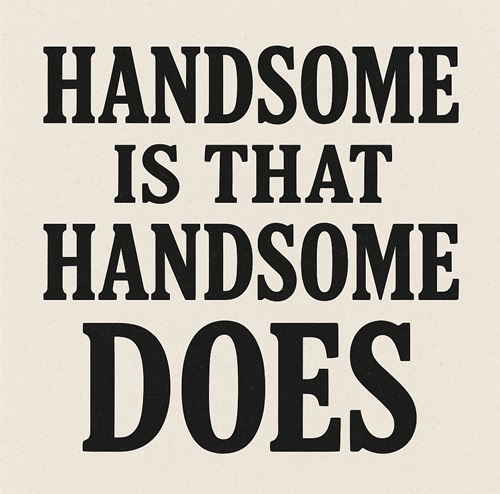This is a moral maxim, one which very beautifully expresses the
superiority of ethical over material merit. It will do immense good to
mankind if the noble and lofty teachings embodied in this and other such
maxims were duly unfolded and their implications clearly explained.
Life is a development in which the endeavour of man should be to
travel daily towards greater and greater perfection. A life which has no
direction to move in and in which one only lives in the physical sense is
called ‘vegetation,” which means living like a thing without mind, growing
merely physically. Such a life is a descending from the higher human level
to a lower unconscious and unthinking level. The superiority of man over
the rest of the creation consists in nothing but in this possession of a mind
and an urge to excel in things of the mind and the spirit rather than in
things of the body.
From this point we come to the next. What are the great
directions in which human life is to seek its perfection or the fullness of its
development? These directions are variously called moral aims, ideals or
values. An ideal is a state of perfection towards which we must endeavour
to travel, but which is so high that we human beings, with our limited span
of life and the so many weaknesses inherent in us, may never hope to
But there is great merit even in having felt the urge and the pull
kal and in having made an effort to rise towards it.
A ‘value’ means an idea which represents something which is
in itself rather than for the sake of something else. A little distinction
make what we mean by value exactly clearly. Wealth is a good thing.
*s not good in itself. It is good only in so far as it helps us to achieve
e other ends, for example, the necessities of life, power, influence,
These other things which come as a consequence of possessing wealth
der own turn may not be good in themselves, but may only be a means
esl further ends. On the other hand, contemplating nobility is
mething good in itself; it is desirable in itself, and we cannot imagine it
ade only an intervening stage to the attainment of something higher than
The maxim which stands at the head of this essay expresses the
aception of a value. Our criterion of judgment in life is ordinarily
mited and shallow. We are carried away either by stupidity or by
elishness in valuing things of a lower kind. Goodness does not lie in
wealth or in power. These are merely a moral or non-moral things, neither
good nor bad. Their goodness or badness is to be determined by the
direction which they take, by the use to which they are put. The thing
which is really good, and which determines whether a man is good or
handsome, whether he is worthy of our praise or not, is this quality of
doing something “handsome,” that is morally good.
